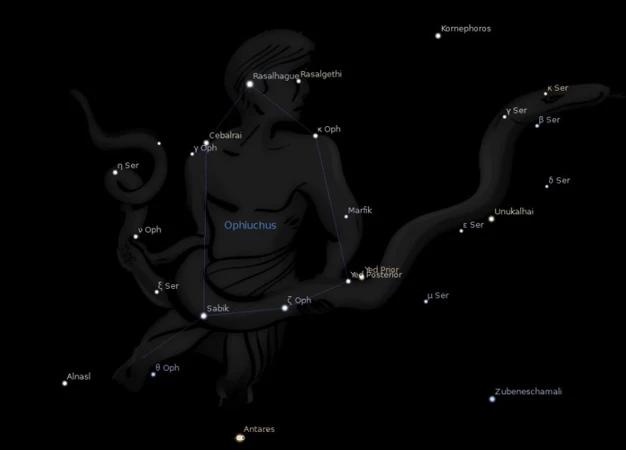The concept of Ophiuchus has long puzzled astronomers and astrologers alike, sparking debates about its significance and role in both scientific and mystical realms. Ophiuchus, also known as the serpent bearer, is a constellation that has evolved over time, leaving a rich history of mythology, controversy, and scientific discoveries in its wake. Its positioning in relation to the zodiac and its impact on astrological systems have generated much discussion and speculation. In this article, we will delve into the enigmatic evolution of Ophiuchus, exploring its astronomical and astrological significance, its ancient mythological roots, the controversies surrounding its classification, and its portrayal in popular culture. Additionally, we will examine the scientific discoveries within Ophiuchus and the interpretations of its astrological characteristics, while addressing misconceptions and the influence of Ophiuchus in modern-day beliefs and media representations. Prepare to embark on a journey through time and space as we unravel the mysteries of Ophiuchus.
The Constellation of Ophiuchus
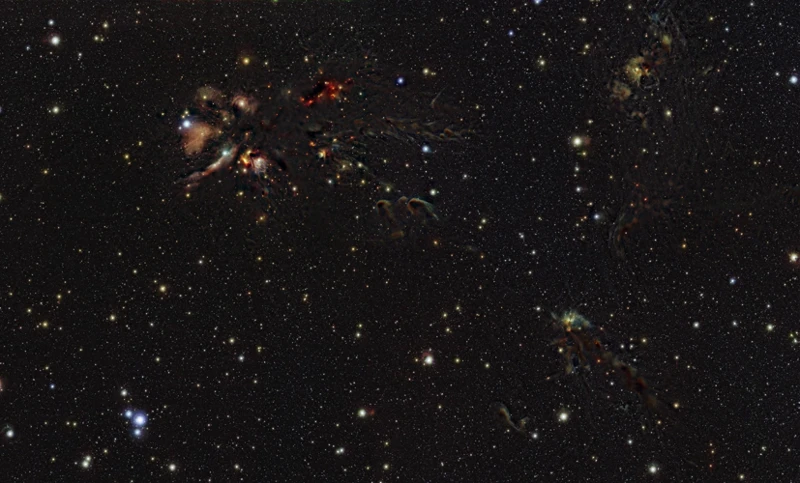
The Constellation of Ophiuchus is a prominent and fascinating feature of the night sky. Located near the celestial equator, it is often depicted as a figure holding a serpent, symbolizing healing and wisdom. Ophiuchus is situated between the constellations of Sagittarius and Scorpio, with its largest star, Rasalhague, marking the head of the serpent bearer. With its distinctive shape and numerous stars, Ophiuchus stands out among the constellations. Its placement on the ecliptic path has led to debates regarding its inclusion in the zodiac. While traditionally the zodiac consists of twelve signs, Ophiuchus has gained attention as a thirteenth sign, challenging the conventional astrological system. Its alignment with Sagittarius and Scorpio has further fueled discussions about its relation to these neighboring constellations. The Constellation of Ophiuchus has captivated astronomers and astrologers alike, leaving an indelible mark on the sky and our collective imagination.
Link: /ophiuchus-aligning-stars-sagittarius-scorpio/
Astronomical Significance
The astronomical significance of Ophiuchus lies in its unique position and notable celestial features. This constellation is host to several fascinating stellar phenomena, including globular clusters, nebulae, and even supernovae remnants. One such example is the Barnard’s Star, one of the closest single stars to our solar system. Ophiuchus is also home to the famous Kepler’s Supernova, an explosion observed in 1604, which holds important insights into the life cycle of massive stars. Additionally, Ophiuchus plays a role in the ongoing exploration of exoplanets and exobiology. With its placement in the night sky and its intriguing stellar objects, Ophiuchus continues to be a focal point for astronomers and researchers, contributing valuable knowledge to our understanding of the universe.
Link: /legendary-figures-ophiuchus-constellation/
Astrological Significance
Astrologically, the significance of Ophiuchus has sparked intense debate and speculation. While traditionally the zodiac consists of twelve signs, Ophiuchus has emerged as a thirteenth sign, shaking the foundations of astrological systems. Those born between November 29th and December 17th are believed to fall under the influence of Ophiuchus. Ophiuchus individuals are said to possess traits such as wisdom, healing abilities, and a quest for knowledge. They are often described as intuitive and inclined towards spirituality. Despite this newfound attention, the inclusion of Ophiuchus as a zodiac sign remains a controversial topic within astrology. Some argue that incorporating Ophiuchus would disrupt the long-standing astrological framework and dilute the characteristics assigned to the twelve traditional signs. Nevertheless, there are those who firmly believe that Ophiuchus deserves recognition and should be included as a distinct sign in the zodiac.
Link: /ophiuchus-zodiac-sign/
Ancient Mythological Roots
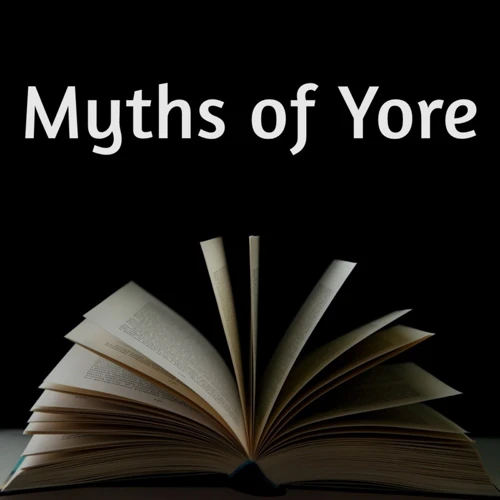
Ancient Mythological Roots of Ophiuchus
Greek Mythology:
In Greek mythology, Ophiuchus is associated with the legendary figure of Asclepius, the god of healing and medicine. According to the myth, Asclepius was the son of Apollo and learned the art of healing from the centaur Chiron. Asclepius became known for his ability to resurrect the dead with his healing powers, which ultimately led to his demise. Zeus, fearing that Asclepius’ abilities disrupted the natural order of life and death, struck him down with a thunderbolt. However, in honor of his contributions to medicine, Zeus immortalized Asclepius as the constellation Ophiuchus.
Other Cultural Interpretations:
Ancient Egyptian mythology also recognizes Ophiuchus as Imhotep, a sage considered the patron of medicine and healing. Imhotep was revered as a deity and served as the architect of the Step Pyramid of Djoser in Saqqara.
In Chinese mythology, Ophiuchus is associated with the constellation Shéngxiào, which represents a serpent or snake. In Chinese astrology, the snake symbolizes wisdom, intuition, and charm. Ophiuchus’ serpent symbolism aligns with this representation.
These ancient mythological roots highlight the importance of Ophiuchus in various cultures and emphasize its association with healing, wisdom, and knowledge. The legends surrounding Ophiuchus have contributed to its enduring significance in astronomy and astrology.
Greek Mythology
In Greek mythology, Ophiuchus, the serpent bearer, has a rich and intriguing history. According to ancient Greek legends, Ophiuchus represents the figure of Asclepius, the god of medicine and healing. Asclepius was renowned for his ability to bring the dead back to life, which incited the jealousy of the gods. In some renditions, Zeus, the king of the gods, struck Asclepius with a lightning bolt, killing him. However, due to his extraordinary healing powers, Asclepius was eventually resurrected and immortalized as the constellation Ophiuchus. The association between Ophiuchus and the healing arts is deeply rooted in Greek mythology, emphasizing the celestial connection to knowledge, wisdom, and the ability to bring about transformation and healing through serpents. Ophiuchus’s ties to Greek mythology add a layer of mystique and wonder to its astronomical and astrological significance.
Other Cultural Interpretations
The constellation of Ophiuchus holds significance not only in Greek mythology but also in various other cultural interpretations. In ancient Egyptian culture, Ophiuchus was associated with Imhotep, a wise and revered figure considered the god of medicine and healing. Imhotep was believed to possess great knowledge and the ability to cure diseases. In Native American folklore, Ophiuchus has been linked to the Cree and Ojibwa tribes, representing a great hunter or shaman who possessed exceptional healing abilities. In Chinese astronomy, Ophiuchus is associated with the Vermilion Bird or Phoenix, symbolizing auspiciousness and rebirth. The representation of the serpent bearer varies across cultures, highlighting the diverse interpretations and legends surrounding this constellation. These cultural interpretations illustrate the universal fascination with Ophiuchus and its depiction as a powerful and mystical figure throughout history.
Ophiuchus and the Zodiac

Ophiuchus and the Zodiac have a complex and controversial relationship that has intrigued scholars and enthusiasts alike. The Zodiac, as traditionally recognized, consists of twelve signs that are based on the path of the Sun across the celestial sphere. However, the inclusion of Ophiuchus as a thirteenth sign has been a topic of debate. This controversy stems from the phenomenon known as the precession of the equinoxes, where the Earth’s axis gradually shifts over time. As a result, the alignment of the Sun with the constellations has changed since the Babylonian era when the Zodiac was originally established.
One argument for including Ophiuchus in the Zodiac is that the Sun spends about 18 days traveling through this constellation each year. This has led some astrologers to propose Ophiuchus as the “new” zodiac sign, shifting the dates of the other signs accordingly. Advocates of this view argue that Ophiuchus represents transformative energy, healing, and spiritual growth.
However, critics argue that the traditional twelve signs have been deeply ingrained in astrological systems and interpretations for centuries, and changing the Zodiac to accommodate Ophiuchus would be a significant shift. They maintain that Ophiuchus should be considered a separate and symbolic entity within astrology, rather than a recognized zodiac sign.
It’s important to note that while Ophiuchus may not be officially recognized in mainstream astrology, there are astrologers and enthusiasts who believe in its influence and incorporate it into their interpretations. The debate surrounding Ophiuchus and the Zodiac adds an intriguing layer of complexity to the field of astrology, reflecting the evolving perspectives and ongoing discussions within this ancient practice.
Precession of the Equinoxes
The precession of the equinoxes is a fascinating astronomical phenomenon that plays a significant role in the interpretation of zodiacal constellations, including Ophiuchus. This process refers to the slow and gradual shift in the Earth’s rotational axis over the course of approximately 26,000 years. As a result, the position of the equinoxes and solstices in relation to the stars changes over time. This phenomenon is caused by the gravitational pull exerted on the Earth by the Moon and the Sun, as well as the Earth’s own rotation. The precession of the equinoxes has implications for astrology, as it affects the dates associated with zodiac signs. Over centuries, the alignment of constellations with the ecliptic has shifted, leading to the inclusion or exclusion of certain constellations within the zodiac. Ophiuchus, being positioned along the ecliptic, has garnered attention due to its potential inclusion as a zodiac sign. This astronomical phenomenon highlights the complex and ever-evolving nature of our understanding of the cosmos.
Link: /ophiuchus-zodiac-sign/
Inclusion in the Zodiac
Inclusion in the Zodiac has been a subject of much debate when it comes to Ophiuchus. Traditionally, the zodiac consists of twelve signs, each representing different personality traits and characteristics. However, Ophiuchus challenges this conventional system as it aligns with the ecliptic path and overlaps with parts of Sagittarius and Scorpio. Some argue that this positions Ophiuchus as a thirteenth sign, adding complexity to astrological interpretations. Proponents of its inclusion highlight the need for an updated and more accurate zodiac, incorporating this enigmatic constellation. They argue that Ophiuchus brings forth unique qualities and potential influences on individuals’ lives. However, critics argue that adding Ophiuchus would disrupt the system that has been in place for centuries, casting doubt on the validity of astrology as a whole. The debate continues, with astrologers and enthusiasts grappling with the question of whether Ophiuchus should be recognized as an official part of the zodiac.
The Ophiuchus Controversy
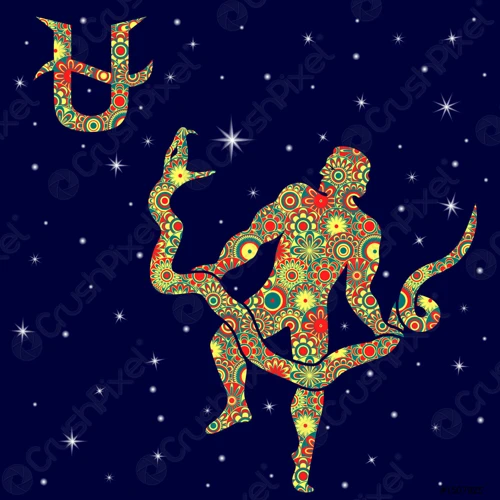
The Ophiuchus Controversy stems from the conflicting views surrounding the classification and inclusion of the constellation within both scientific and astrological systems. Astronomically, Ophiuchus is recognized as a legitimate constellation, with its own set of stars and celestial features. However, when it comes to astrology, which has traditionally relied on the twelve zodiac signs, Ophiuchus creates a stir. The controversy arises from the phenomenon known as the precession of the equinoxes, causing a shift in the position of the Sun in relation to the constellations over time. This shift has led some to argue that Ophiuchus should be considered the thirteenth zodiac sign. Proponents of this idea argue that ancient civilizations, such as the Babylonians and Greeks, recognized Ophiuchus as a zodiac sign in the past.
On the other hand, skeptics argue against the inclusion of Ophiuchus in the zodiac, citing the established system based on twelve signs that has been in place for centuries. They believe that the introduction of Ophiuchus would disrupt the balance and symbolism associated with the current zodiac system. This controversy between astrologers and astronomers challenges the traditional understanding of the zodiac, leading to ongoing debates and discussions within both communities.
Link: N/A
Modern Astronomical Classification
Modern Astronomical Classification of Ophiuchus has gone through several iterations as our understanding of the cosmos has evolved. Initially, Ophiuchus was recognized as one of the 48 constellations cataloged by the Greek astronomer Ptolemy in the 2nd century. However, with advancements in telescopes and observational techniques, Ophiuchus underwent a reevaluation. In the 18th century, French astronomer Nicolas-Louis de Lacaille introduced a more comprehensive catalog, in which Ophiuchus was assigned its current boundaries. Today, Ophiuchus is officially recognized as one of the 88 modern constellations defined by the International Astronomical Union (IAU). The IAU’s delineation allows astronomers to accurately locate and study celestial objects within Ophiuchus, contributing to our understanding of the cosmos. The modern astronomical classification of Ophiuchus exemplifies the dynamic nature of scientific exploration, constantly refining our knowledge of the vast universe.
* Greek astronomer Ptolemy cataloged 48 constellations in the 2nd century.
* French astronomer Nicolas-Louis de Lacaille introduced a new catalog in the 18th century.
* Ophiuchus was assigned its current boundaries in de Lacaille’s catalog.
* Ophiuchus is currently one of the 88 modern constellations defined by the International Astronomical Union (IAU).
* The IAU’s classification allows for precise study of celestial objects within Ophiuchus.
Impact on Astrological Systems
The inclusion of Ophiuchus in astrological systems has had a significant impact on how astrology is interpreted and understood. Traditionally, astrology consists of twelve zodiac signs, each representing specific personality traits and characteristics. However, the emergence of Ophiuchus as a potential thirteenth sign has challenged this established system. This development has sparked debates and discussions among astrologers, as they grapple with the implications of incorporating Ophiuchus into their readings and horoscopes. Some argue that the addition of Ophiuchus brings new dimensions and possibilities to astrology, expanding the range of personalities and traits that can be explored. Others, however, question the validity and accuracy of including Ophiuchus, arguing that it disrupts the established framework and undermines the foundations of astrological interpretation. This controversy surrounding Ophiuchus has led to a diversity of opinions within the astrological community, with some embracing its inclusion, while others remain steadfast in their adherence to the traditional zodiac system. Regardless of one’s stance, there is no denying that Ophiuchus has left a lasting impact on astrological systems, reshaping and challenging our understanding of the celestial influences on human personalities and destinies.
Scientific Discoveries in Ophiuchus
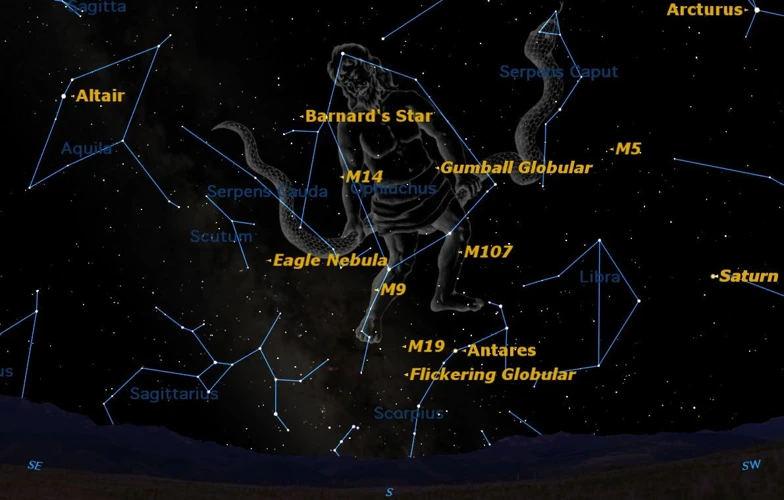
Scientific research in Ophiuchus has revealed a treasure trove of discoveries, shedding light on the mysteries of the universe. This constellation has been a focal point for astronomers in their exploration of stellar features and supernovae. Ophiuchus hosts a variety of intriguing stars, ranging from giants to exoplanet host stars. These celestial bodies offer valuable insights into different stages of stellar evolution and the processes that shape the cosmos. Several notable supernovae have been observed within Ophiuchus, such as Kepler’s Supernova and SN 1604. These explosive events have provided scientists with crucial data to study the life cycles of stars and the resulting remnants. The study of exoplanets within Ophiuchus has opened up new avenues for exploring the potential for exobiology or the existence of life beyond Earth. By analyzing the habitable zones and planetary compositions, scientists are gaining a deeper understanding of the possibilities for extraterrestrial life within this constellation. With its abundance of stellar phenomena and ongoing scientific investigations, Ophiuchus continues to captivate researchers and push the boundaries of our knowledge of the universe.
Stellar Features and Supernovae
Within the boundaries of Ophiuchus lies a treasure trove of stellar features and the remnants of awe-inspiring supernovae. This constellation boasts several notable stars, including Rasalhague, an intriguing yellow giant located at the head of the serpent bearer. Rasalhague is known for its intriguing variability, pulsating in brightness over time. Another stellar gem is Barnard’s Star, a red dwarf that holds the distinction of being the fourth-closest known individual star to our solar system. Ophiuchus is also home to the fascinating Kepler’s Supernova Remnant, a remnant of a spectacular stellar explosion observed by Johannes Kepler in 1604. This supernova, when it occurred, briefly outshone the planet Venus and left behind a remnant that continues to intrigue astronomers with its complex structure and evolving nature. The constellation of Ophiuchus thus serves as a celestial canvas, showcasing the grandeur and impermanence of the universe’s stellar creations.
Exoplanets and Exobiology
Exoplanets and Exobiology have become key areas of interest within the field of astronomy, and the constellation of Ophiuchus has played a significant role in advancing our understanding of these subjects. Ophiuchus hosts a number of known exoplanets, offering valuable insights into the diversity and potential for habitability beyond our solar system. One notable example is the exoplanet HD 147018 b, which orbits a star in Ophiuchus and has been found to have a high eccentricity, challenging previous theories about planetary formation. Additionally, Ophiuchus has been the focus of research related to exobiology, the study of life beyond Earth. Scientists have investigated the potential habitability of exoplanets within the constellation, exploring factors such as proximity to a habitable zone and the presence of key elements necessary for life. These investigations have provided a glimpse into the possibilities of extraterrestrial life and have sparked further inquiries into the potential for Ophiuchus to potentially host habitable worlds. The study of exoplanets and exobiology in Ophiuchus continues to uncover remarkable discoveries and push the boundaries of our understanding of the universe.
Interpretations in Astrology
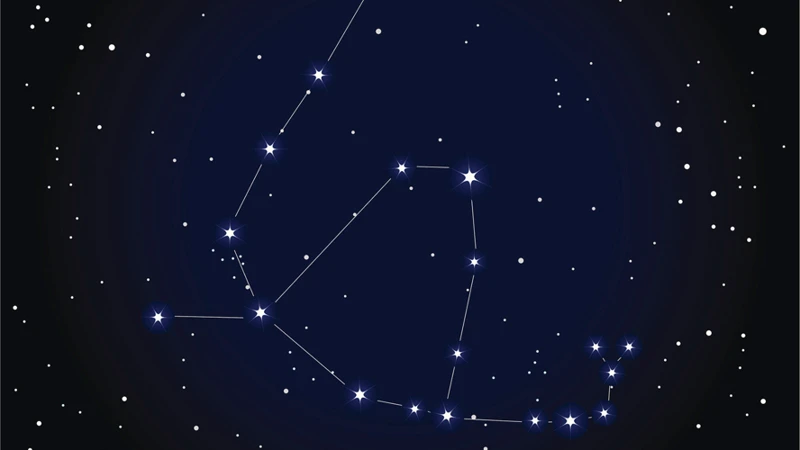
Interpretations in Astrology surrounding Ophiuchus have intrigued astrologers who seek to understand its significance and incorporate it into astrological systems. Ophiuchus is believed to have its own set of characteristics and traits based on its mythological association with healing and wisdom. Those born under the influence of Ophiuchus are purported to possess intuitive abilities, a deep connection to spirituality, and a natural inclination towards the healing arts. Compatibility and horoscope analysis for Ophiuchus individuals are still being explored and debated within the astrological community. Some consider Ophiuchus as an additional zodiac sign, placing it between Scorpio and Sagittarius, while others contend that it functions as a bridge between the two signs. The interpretation of Ophiuchus in astrology is an ongoing subject of exploration and speculation, adding an intriguing layer to the study and understanding of celestial influences on human personality and destiny.
List of Interpretations in Astrology:
– Ophiuchus as a thirteenth zodiac sign, symbolizing healing and wisdom.
– Unique characteristics and traits associated with Ophiuchus individuals, including intuition and a connection to spirituality.
– Ongoing discussions about the compatibility of Ophiuchus with other zodiac signs.
– Debate on the placement of Ophiuchus in relation to Scorpio and Sagittarius.
– Exploration of Ophiuchus as a bridge between Scorpio and Sagittarius, combining elements of both signs.
Characteristics and Traits
The constellation of Ophiuchus has been assigned various characteristics and traits in the realm of astrology. Individuals born under Ophiuchus are believed to possess a unique blend of traits that align with the qualities associated with the serpent bearer. Ophiuchus is commonly associated with knowledge, wisdom, and healing abilities. Those born under this sign are said to be intellectually curious, intuitive, and possess a deep understanding of the world around them. They are often seen as individuals who seek spiritual growth and enlightenment, valuing introspection and self-reflection. Ophiuchus individuals are believed to have a transformative and healing presence, utilizing their natural empathetic abilities to help and support others. They are often open-minded, adaptable, and possess a strong sense of justice. While Ophiuchus may not be widely acknowledged in traditional astrology, those who resonate with its characteristics find solace in the unique traits and qualities associated with this enigmatic sign.
Compatibility and Horoscopes
Compatibility and horoscopes play a crucial role in astrological interpretations, and Ophiuchus adds an intriguing element to this aspect. Individuals born under the sign of Ophiuchus are believed to possess unique characteristics that influence their compatibility with other zodiac signs. It is said that those with Ophiuchus as their sun sign are passionate, ambitious, and possess a healing nature. When it comes to compatibility, Ophiuchus individuals are thought to be most compatible with the signs of Aries, Leo, and Libra, with their energy and charisma complementing each other. However, they might face challenges in relationships with Taurus and Scorpio, as their stubborn nature and intense emotions may clash with Ophiuchus’ desire for balance and harmony. It is important to note that astrology is complex and involves many factors beyond just sun signs. Other placements, such as moon and rising signs, also contribute to the overall compatibility equation. While compatibility can be studied through astrology, it is essential to consider the entire birth chart to gain a comprehensive understanding of an individual’s compatibility with others. Understanding the compatibility dynamics with Ophiuchus can provide valuable insights into relationship dynamics and foster stronger connections in the realm of astrology.
Misconceptions and Pop Culture Influence
Misconceptions and Pop Culture Influence surrounding Ophiuchus have played a significant role in shaping public perception and understanding of this enigmatic constellation. One of the most common misconceptions is the idea that Ophiuchus is a newly discovered constellation. However, Ophiuchus has been known and recognized by astronomers for thousands of years. Another misconception is that Ophiuchus is a zodiac sign, often attributed to the belief in the thirteenth zodiac sign, fueled by sensationalized media headlines. While Ophiuchus is not officially recognized as a zodiac sign, its inclusion has sparked interest and confusion among astrology enthusiasts. In popular culture, Ophiuchus has made appearances in various forms of media, such as literature, movies, and television shows, often portraying the serpent bearer as a wise or mysterious character. These representations have contributed to the fascination and intrigue surrounding Ophiuchus. It is important to note that while Ophiuchus may not hold the same astrological significance as the traditional zodiac signs, its influence in popular culture and public interest cannot be underestimated.
Link: /ophiuchus-zodiac-sign/
Media Representations
Media representations of Ophiuchus have varied in their portrayal of this enigmatic constellation. While Ophiuchus holds a significant place in astronomy and astrology, it has often been overlooked or misunderstood in popular culture. In some cases, Ophiuchus is omitted entirely from mainstream references to the zodiac, reinforcing the traditional twelve-sign system. However, there have been instances where Ophiuchus has been embraced and depicted in films, books, and artwork. These representations often emphasize the mystical and mysterious aspects of Ophiuchus, portraying individuals born under this sign as possessing supernatural powers or having a unique destiny. With the rise of social media and online platforms, discussions about Ophiuchus have gained traction, sparking interest and curiosity among a wider audience. Despite its intermittent presence in media, the portrayal of Ophiuchus continues to evolve, reflecting the ongoing fascination with this celestial figure.
Link: /legendary-figures-ophiuchus-constellation/
Public Interest and Beliefs
Public interest and beliefs surrounding Ophiuchus have been a subject of fascination and speculation. With the rise of social media and online platforms, the topic has gained significant attention and sparked discussions among astrology enthusiasts. Many individuals were surprised to discover the existence of a thirteenth zodiac sign, leading to debates about its validity and impact on personal horoscopes. Some embraced Ophiuchus as a new addition to the zodiac, seeking to understand the potential influence it may have on their astrological traits and compatibility. Others remained skeptical, questioning the scientific basis of astrology and considering it as mere entertainment. Nevertheless, Ophiuchus continues to captivate the public imagination, with online quizzes, memes, and articles dedicated to exploring its characteristics and compatibility with other signs. The controversy surrounding Ophiuchus has undeniably fueled curiosity and engagement, highlighting the enduring fascination people have with the mysteries of the cosmos.
Conclusion
In conclusion, the exploration of Ophiuchus in both astronomy and astrology reveals a complex and intriguing phenomenon. The Constellation of Ophiuchus, with its rich mythological roots and astronomical significance, continues to inspire wonder and curiosity. While it has been historically debated and excluded from the zodiac, Ophiuchus has found its place as the thirteenth sign in some astrological systems, challenging traditional beliefs. Scientific discoveries within Ophiuchus, such as stellar features, supernovae, and potential exoplanets, open avenues for further exploration and understanding of the universe. In astrology, interpretations of Ophiuchus’ characteristics and compatibility contribute to the diverse and nuanced perceptions of individuals. Misconceptions and the influence of Ophiuchus in pop culture highlight the enduring fascination with this enigmatic constellation. Whether one views Ophiuchus through an astronomical lens or as a celestial guide in astrology, its symbolism and impact cannot be ignored. The journey through the evolution of Ophiuchus has provided a glimpse into the interconnectedness of science, mythology, and human beliefs, inviting us to continually explore the mysteries of the cosmos and our place within it.
Frequently Asked Questions
What is the astronomical significance of Ophiuchus?
Ophiuchus holds great astronomical significance as a constellation located near the celestial equator. It contains several notable stars and is positioned between Sagittarius and Scorpio, making it a distinctive feature of the night sky.
Is Ophiuchus included in the zodiac?
The inclusion of Ophiuchus in the zodiac is a subject of debate. While it is not traditionally recognized as one of the twelve zodiac signs, some astrologers argue for its inclusion as a thirteenth sign, considering its placement on the ecliptic path.
What are the ancient mythological roots of Ophiuchus?
Ophiuchus has rich mythological roots, particularly in Greek mythology. It is associated with figures like Asclepius, the Greek god of healing, as well as with the legend of the serpent bearer who possessed great knowledge and wisdom.
Are there other cultural interpretations of Ophiuchus?
Yes, besides Greek mythology, Ophiuchus has been interpreted differently by various cultures. In Egyptian mythology, it is connected to the god Imhotep, known for his healing abilities. Different cultures have their own unique stories and beliefs surrounding this constellation.
What is the controversy surrounding Ophiuchus?
The controversy surrounding Ophiuchus primarily revolves around its classification. Astronomers classify it as a constellation, while some astrologers advocate for its recognition as a zodiac sign. This debate has brought attention to the evolving nature of astrology and the boundaries of the zodiac.
What scientific discoveries have been made within Ophiuchus?
Ophiuchus has revealed fascinating scientific discoveries. It is home to numerous stellar features, including supernovae, which provide valuable insights into stellar evolution. Additionally, discoveries of exoplanets within this constellation have expanded our understanding of potential life in the universe.
What are the astrological interpretations of Ophiuchus?
In astrology, Ophiuchus is associated with traits such as wisdom, healing abilities, and transformation. Astrologers explore its influence on individual horoscopes and compatibility with other zodiac signs, offering interpretations that complement traditional astrology.
How does Ophiuchus influence compatibility and horoscopes?
Astrologers consider Ophiuchus when assessing compatibility between individuals. Its inclusion as a zodiac sign, for those who recognize it, can offer new insights into relationship dynamics and compatibility with other signs. It adds another layer of complexity to horoscope interpretations.
What misconceptions exist about Ophiuchus in pop culture?
Pop culture often portrays Ophiuchus as a mysterious and powerful figure associated with secret knowledge and hidden truths. However, it’s important to note that these depictions may not accurately reflect the historical or astrological interpretations of Ophiuchus.
What is the public’s interest and belief in Ophiuchus?
Ophiuchus has garnered public interest and curiosity, particularly as discussions about its zodiac status and astrological implications gain traction. Some individuals resonate with the characteristics attributed to Ophiuchus, while others remain skeptical or unaware of its significance.

